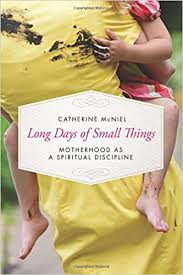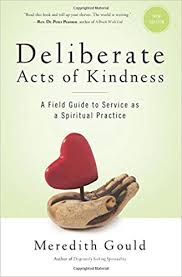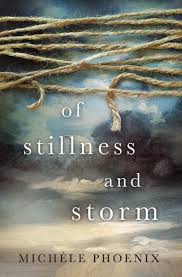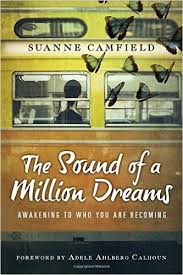“For a long time, I thought my children were a distraction from the work God was doing in my life and in the world around me. I am starting to realize they are the work God is doing in my life. They are the invitation to give, to receive, to be humbled, to grow. They are the vehicles of grace.” – Amy Julia Becker
A few years ago, my friend Amy Julia Becker wrote a frank and shimmering memoir of her journey as the parent of a daughter with Down Syndrome called A Good And Perfect Gift (my review here). That book detailed how she become a student of her little girl, Penny.
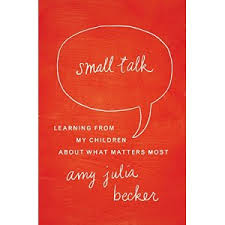 Becker has continued to be the kind of parent who is a student of her children. Her newest book, Small Talk: Learning From My Children About What Matters Most (Zondervan, 2014) shares the lessons she is learning from her three children. In Becker’s capable hands, these lessons have universal application for all of us as we seek to live and love with childlike faith, which not so coincidentally, looks a lot like the wisdom of God.
Becker has continued to be the kind of parent who is a student of her children. Her newest book, Small Talk: Learning From My Children About What Matters Most (Zondervan, 2014) shares the lessons she is learning from her three children. In Becker’s capable hands, these lessons have universal application for all of us as we seek to live and love with childlike faith, which not so coincidentally, looks a lot like the wisdom of God.
When Becker describes how the ongoing work of teaching her children to be kind revealed her own deficits when it came to this fruit of the Spirit: “My niceness to people…had been motivated by some mixture of pity and curiosity and a desire to be good. God’s kindness to me was motivated by love.” Small Talk contains 29 short chapters that will strengthen parents in the trenches of life with little ones, and will inspire even those of us without kids, or those who have adult children, to remember anew what does matter most in our lives.
I asked Becker a few questions about how she’s developed a learner’s heart in the tasks of everyday life with her children:
Q: I think many parents have that feeling as they’re in the soggy trenches of daily life. How did you become aware of the ways in which you were thinking of your kids as a distraction from God’s work?
AJ: I remember one morning when Marilee, our youngest child, was about two years old. It was a rare morning when I had woken up before all my kids, so I was enjoying what felt like a luxurious few moments alone at the dining room table with a cup of tea and my journal. I wrote down something about how I feel like I sometimes ignore Marilee and miss out on her childhood because I’m running around doing other things. As soon as the words were on the paper, I heard Marilee crying upstairs. And my first response was to feel completely frustrated that she had interrupted my quiet time! Thankfully, I quickly noticed that I had an unexpected chance to spend some time with her that morning, that her cries were an answer to prayer. That moment crystalized years of tension for me, years where I had wanted to get back to regular prayer time and instead felt constantly interrupted by my kids. That moment made me realize that maybe God was using my kids intentionally to disrupt my prayer time and to even expand my understanding of prayer.
Q: So much of your book focuses on cultivating a listener’s posture when it comes to parenting our children. No matter what specific parenting philosophy shapes a parent’s choices, the responsibility to teach and guide our kids drives so many of our interactions. It’s our responsibility as parents to toilet train and teach to ride a bike and form a moral conscience in our kids. We can get so busy as teachers that we forget to become students of our kids. What would you say to parents to help them include some “learning, listening” time in their relationships with their kids?
AJ: I’m not as diligent about this any more as I wish, but for years I kept a “family journal” by the side of my bed. At the end of the day, I would try to jot down one thing—a statement they made that made me laugh, a question they asked that made me think, or even just a new thing they had learned that day. I think the habit of writing down one thing a day helped me become more attentive to them not just as little people for whom I was responsible but also to them as little people who God could use to teach me big things.
Q: You emphasize throughout the importance of humility, tied to being a learner, in the parenting role. (“After Marilee’s birth, you write, “Yet I know I have done nothing to deserve this little one who has curled herself tight against my chest. I have no caused this soft skin and those blue eyes and this gentle, steady breathing, this health, this wholeness. I have received her, but I have not created her. She is a gift.” – p. 93) We often say the words that children are a gift from God (Ps. 127:3), but many parents struggle to live this reality when they’re rushing to soccer practice or hitting the drive through window at McDonalds after a long day. What is one way you’ve learned to keep pressing toward the humility that allows you to hear those small sermons God is giving you through the lives of your kids?
Well, I’m certainly as guilty as any other parent of missing the gifts coming to me through my kids! But I can think of a few things that have probably helped along the way. Perhaps the most important thing was the way God used Penny’s diagnosis with Down syndrome to teach me all sorts of new things about love and beauty and humanity. Penny’s life preached a sermon to me before she could even talk, so maybe that put me in a position to assume she would continue to teach me throughout her life.
On a more practical level, Peter and I have both given our kids permission to call us out when we are on our iPhones instead of paying attention to them. We also go around the table and share a “high point” of the day (and a low point if they want). I think this practice has gotten all of us into the habit of listening to each other and being able to receive from one another. And finally, about once a week we try to share goals with one another. Peter and I have shared goals too, and there might be nothing more humbling than to admit to my children when I haven’t even come close to achieving my goal in a given week!
Q: What do you know about God now at this point of your journey as a parent that was a mere abstraction before you had children?
Oh, so many things! I understand more about grace and love for sure. And I am far more convinced of God’s faithfulness than I ever was before our kids were born. I think back especially to a time when we were deciding whether to move from a good school situation for Penny in New Jersey to an unknown situation in a small town in Connecticut. I felt so afraid that we would make the wrong choice, and God interrupted my anxious thoughts with the words, “Even if you make the wrong choice, I will take care of Penny.”
We ended up moving, and her school situation couldn’t be more well-suited to her needs. I’m so aware of both the responsibility I have to nurture these children of ours and yet also the ways in which I will always be inadequate. God has shown me more and more how to turn to him to care for them (and for me!) instead of thinking I need to be a perfect parent.






